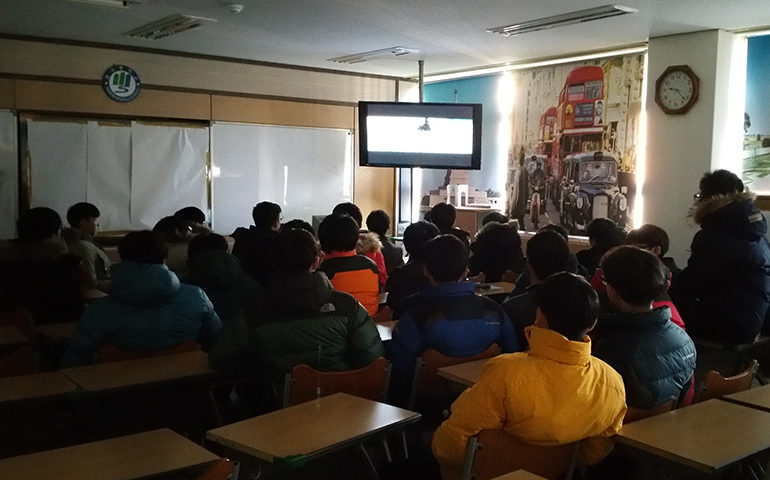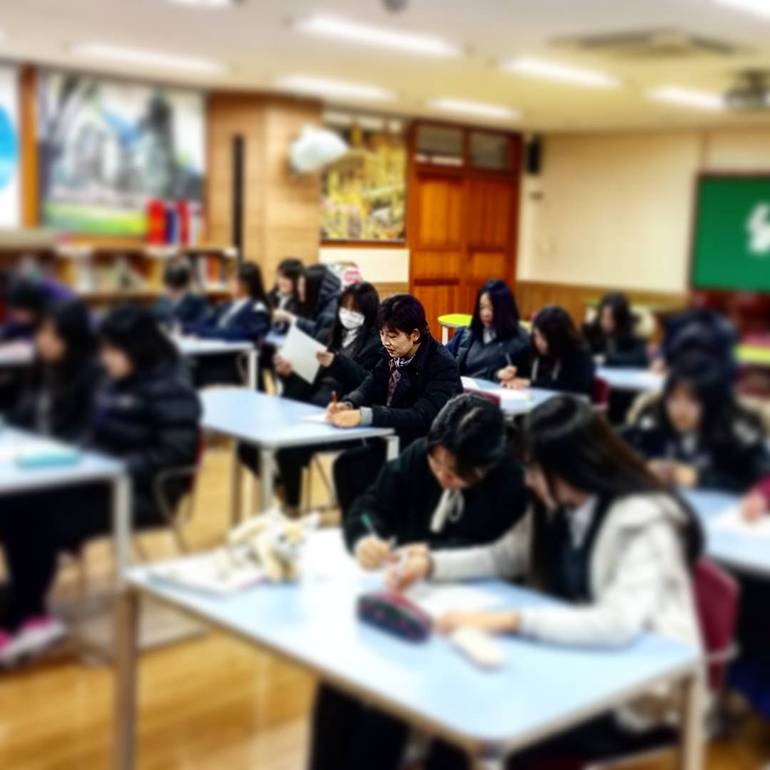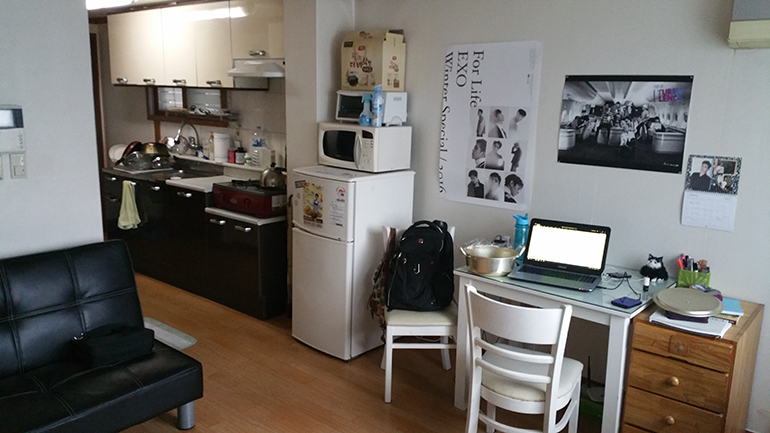Expectations Vs. Reality of Teaching English in South Korea

I racked my brain trying to remember all the times when I have been downright surprised by my experiences teaching English in South Korea. To be honest, there have been too many to count. Every day, something about my new reality catches me off guard or has me shake my head in frustration or resolve.
The following tidbits are what I have found to be the most significant differences between my expectations and realities of life as a teacher abroad.
Expectation: I would be placed in a POE (“Provincial or Rural Office of Education”) as opposed to an MOE (Metropolitan or City Office of Education).
Reality: I am placed in a MOE.
When applying for Korea, I didn’t have a preference to where I would be placed, and so I put “POE” as my preference. I thought this would give me a greater chance of being selected to work for EPIK since I felt sure that my lack of teaching experience would hinder my chances. When I got my placement, Ulsan, I was under the impression that it was in the province and I would be out in the boonies somewhere.
Well, Ulsan, though the smallest of the MOEs, is still an MOE and I am currently enjoying the city life and most of what it offers. I think the reason I got the more desired MOE placement is that I got my application and documents in very early in the process which Greenheart Travel says massively helps your placement chances.

Downtown Ulsan at night. This neighborhood is Samsandong and where we like to spend our weekend nights. Photo by alumna Emily Balamut.
Expectation: I would be an elementary school teacher.
Reality: I am a middle school teacher.
Everything I had heard about EPIK led me to believe that I would be an elementary school teacher. From the initial research, to teacher testimony, to orientation – every avenue of information available steered me in the direction of elementary.
Well, I got the surprise of my life when I saw “Middle School” on my placement form. About 8 of the 50 or so EPIK teachers in my orientation group also got middle school with 2 of those 8 also getting a high school. Middle school is daunting and intimidating, but I enjoy it so much because the kids can communicate with you even if they resist with all their might. And some of them will resist.
You should also know that EPIK tells you everything you could POSSIBLY want to know about co-teaching during its many training sessions (both online and in person), but most of the middle school EPIK teachers I know (at least in Ulsan – everyone’s experiences vary widely, so don’t take this as fact) do not co-teach. What this means is that my Korean teachers do not plan lessons with me; they are, however, in the room and will deal with translation or discipline needs. I plan every lesson by myself and have complete control over what happens during my 45-minute long class periods. This Busan Ultimatum blog post helped me suss out a lot of feelings of teaching middle school.

My co-teacher doesn’t teach with me, but sometimes, she joins the students in the activities we’re working on! Here, we listened to American pop music and she got a worksheet to fill in the missing words. Photo by alumna Emily Balamut.
Expectation: Teaching in Korea would give me a good idea as to what teaching in America would be like.
Reality: It hasn’t.
Because of the language barrier, teaching in Korea is not anything like it would be in America. I remember my classes from middle school and high school and realize that American schools are so different than Korean schools, and in such a way that teaching at one is in no way like teaching at the other.
For example, middle school Korean students have classes separated by gender. My boys classes feel super out of control sometimes, and my girls classes feel quiet and uninterested. Each class is unique, but overall, I think it has been hard to get a good grasp on what it means to teach students in a way I can track their progress.
My lessons work well for certain classes and not for others. I only see each class for 45 minutes a week, and even after teaching for a semester, I still don’t have a great idea of what level my students are; which is not what I imagine a native speaking teacher’s experience to be.
Since I only teach listening and speaking, if my students don’t talk in class, I assume they are low-level English which is not a fair assumption because Korean schools place a greater emphasis on grammar than speaking. Also very important to note is that middle schoolers of any nationality are self-conscious and don’t want to be placed in the spotlight in case he or she makes a mistake. Only my most confident and outgoing students like to speak up in English.
I find that the majority of my lessons end up geared more towards the outgoing students and in the coming year, I would like to work on ways to help all students feel more confident when speaking. Because of this hurdle while teaching, it’s been difficult for me to really get a hold of what it’s like teaching a group of students because sometimes I’m not even sure if they are taking in what I’m saying.
Expectation: I wouldn’t have trouble getting supplies/groceries/home goods/etc.
Reality: I have had trouble.
The huge home goods store that most EPIK teachers are very familiar with is Homeplus (think Target times 150). I don’t live near a Homeplus, so I haven’t explored the massiveness of it much, but I suggest you locate your nearest one (or similar home goods store) because the apartment you receive through your contract may or may not come with everything you need.
In your first week, you should take stock of everything the previous teacher left. Your contract with EPIK includes certain appliances (including a fridge and a microwave) and furniture (a TV and a table). However, it doesn’t include things like pillows, dishes, rice cookers, or cleaning supplies. As soon as you have a minute to go through everything left behind by the previous teacher, you should decide what appliances and other home goods you think will make your apartment feel more like home.
For example, I had to buy a pillow, but I did not need to buy dishes or pots. Most likely, your co-teacher will have a car and will offer to take you shopping on your first day in your new city or town. However, my co-teacher does not have a car, and she took me to the food mart, not an appliance store. You just don’t know what sort of help you’ll get on your first day, so don’t EXPECT anything.

My kitchen and part of my living room. You can see some of the furniture EPIK supplies. A stove-top, a microwave, fridge, desk, two chairs. I was lucky and got a futon and toaster oven (neither of those are included in the contract). Also not included in the contract are the awesome posters you see hanging. Photo by alumna Emily Balamut.
From groceries to home goods, stores like Homeplus have it all when you don’t have a car; however, it’s very difficult to schlep all your new merchandise home. That being said, there’s always online shopping.
If you’re used to cooking with an oven, I’m sorry, but our apartments do not come with one. I really love cooking and bought a Korean cookbook when I got here. It has been SUPER helpful in learning how to look for Korean ingredients, and how to use the ingredients to make super yummy, home-cooked meals – NONE of which require an oven! Our contract supplies a 2-burner stove-top and I use that for making ALL my meals.
Many of my friends agree that one of the hardest things about being here is eating healthy at home. We often go out to eat 2 or 3 times a week, but that isn’t always the best option. Honestly, using this cookbook has helped me get over the culture shock involved in cooking entirely new ingredients in an unfamiliar way. And fortunately for me, a lot of Korean cooking is just tossing ingredients in a pot and letting it simmer – this is called jjigae or stew.
Before coming to Korea, I wasn’t sure what to expect about my time abroad. There’s no way you’re going to know what it’s like teaching in a new country until you get there and experience it yourself. Everyone’s experience is different, but one thing every single EPIK teacher has learned from teaching in Korea is that this country is full of surprises.
A saying my friends have adopted is: Korean surprise! It reminds us to let go of our expectations and go with the flow. This culture and its ways are confusing, frustrating, pleasantly surprising (24 hour noraebangs?) and sometimes just don’t make sense to foreigners. But unlike America, Korea is ancient and its history is steeped into the lifestyles and attitudes of its people and culture. The beauty of being here is learning to embrace those differences and grow from them, and that’s the reason we’re in Korea, right?
It’s impossible to not have at least one or two expectations before moving to Korea. My advice for anyone coming to Korea is to recognize something is not what you expected, feel what you need to feel, and move on. If something doesn’t go the way you plan or the way you thought it would (some things just won’t), let go of the frustration in that moment because brooding over something negative is a sure-fire way to be unhappy in this new environment. It gets easier over time to recognize and embrace your new reality. Trust me.
About Greenheart Travel’s guest blogger, Emily Balamut:
I am from Minneapolis, Minnesota and am now living in Ulsan, Korea. I’m a total teaching newbie (having never taught in America) and teach 1st and 2nd grade middle school students; the equivalent of 7th and 8th graders. The advice I give in this article is gathered from two months of teaching these middle schoolers, so know that I am not a teaching expert. In these short months, I have already grown so much and my experiences in the classroom have made me a stronger, more confident teacher.
You can read more about my adventures in South Korea on my blog, Emily Teaches Abroad in Korea.
Hello, my name is Aumbree cox and i want to go to Seoul South Korea to teach. I love kids a lot like i want five of my own. this website has helped to understand better and i am very grateful thank you so much. I o plan on going to school in South Korea so that i can learn their language better. i am not sure if they have a school that teaches Korean in Korea hahaha but i hope so.
Hi Emily, thank you for this. I might be in my last year in High school and decided to teach in South Korea after four years of University because I have done research and Korea has great camera control for films which is in my study major.
this is great me and my wife are moving to Songdo my expectations are high hers is very much the reality
Hi Emily.My daughter is busy with her TALK PROGRAMME APPLICATION to South Korea.Please send me your email so we can exchange information.I will highly appreciate it.
Hi Nancy, thank you for your comment. You are welcome to contact us at travelabroad@greenheart.org with questions regarding our programs. We look forward to hearing from you!
Hi, Megan! Thank you so much for sharing information about your teaching experience! How quickly did you get your application in? A week after applications were accepted? I hope to be able to apply about a month and a half after EPIK began accepting Spring 2018 applications! I hope I’m not too late.
Hey Kam! Applying as early as possible is the best thing you can do to increase your chances of being accepted but generally, applying within 6 weeks of the application release date is totally fine 🙂